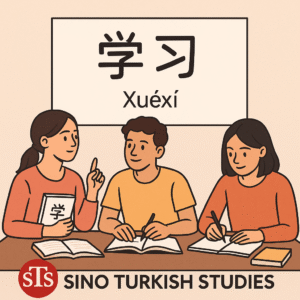In a world increasingly shaped by speed and impermanence, the ancient Chinese idiom “白头偕老” (bái tóu xié lǎo) stands as a powerful cultural testament to enduring love. Literally meaning “to grow old together with white hair,” this four-character phrase has transcended its linguistic form to become a poetic expression of lifelong devotion, loyalty, and partnership.
This idiom is not just a romantic blessing whispered at weddings—it is a condensed philosophy rooted in literature, Confucian ethics, and symbolic traditions that span millennia.
🧠 Decoding the Idiom: Layer by Layer
Each character in “白头偕老” adds depth to the overall meaning:
- 白 (bái) – White: Symbolizes age, purity, and wisdom. Often paired with hair (发) to indicate white-haired elders.
- 头 (tóu) – Head: In context, it refers to white hair, a poetic metaphor for age and shared time.
- 偕 (xié) – Together: A rare and elegant term meaning “in unison” or “in companionship.”
- 老 (lǎo) – Old: Denotes not only age but also respect for experience and constancy in relationships.
Put together, “bái tóu xié lǎo” is a literary vow to age gracefully with one’s partner—a commitment not just to love, but to grow and endure side by side.
📖 Literary and Philosophical Origins
📜 The Book of Songs (《诗经》)
The earliest seed of this idiom comes from the line:
“执子之手,与子偕老。”
“Hold your hand, and grow old with you.”
This verse, from the Classic of Poetry (11th–6th century BCE), portrays a soldier’s longing for unity with his beloved. Over centuries, this emotional sentiment evolved into the idiom “bái tóu xié lǎo.”
🧩 Confucian Ethics
Confucianism reinforced this idea through the values of:
- Duty (义, yì) – Marital commitment as a lifelong responsibility.
- Endurance (忍, rěn) – Love as practice, not just passion.
This shaped Chinese expectations of love not as fleeting romance but as a moral and social promise.
📚 From Dynasties to Daily Life
- Tang Dynasty Poetry (7th–10th c.): Poets like Bai Juyi (白居易) used metaphors of white hair and aging couples to express devotion.
- Ming Dynasty Fiction (14th–17th c.): In works like Stories to Awaken the World (《醒世恒言》), the idiom became embedded in romantic storytelling and wedding culture.
🕊️ Cultural Symbols and Usage
“Bái tóu xié lǎo” is not only a phrase—it encapsulates iconic Chinese love symbolism:
- White hair (白头): Shared time and wisdom.
- Cranes (鹤): Monogamy and longevity.
- Red thread (红线): Mythical ties of soulmates.
Today, the idiom appears in:
- 🗣️ Wedding speeches: “May you bái tóu xié lǎo!”
- 🎬 Films/novels: Including a classic 1950s Shanghai love story titled 《白头偕老》.
- 🧧 Greeting cards & poems: Often used during anniversaries and Lunar New Year.
🎯 Why It Still Matters
In an era dominated by dating apps and temporary connections, “bái tóu xié lǎo” challenges us to reconsider what commitment really means. It’s a reminder that real love is less about intensity and more about endurance. In that sense, this idiom offers not just a blessing, but a cultural philosophy for navigating relationships in modern life.
📚 Source:
Press OnlyChinese, “白头偕老:一个成语里的中国爱情哲学” (The Philosophy of Love Embedded in a Chinese Idiom), image-based linguistic content, 2024.
🔍 Keywords
Chinese love idioms, bái tóu xié lǎo meaning, Chinese wedding blessings, idioms about marriage, Chinese relationship values, Confucian love philosophy, lifelong love in Chinese culture
Abroad Africa AI Beijing Belt & Road BLCU BRICS China chinese CPC CSC Culture Economy education Iraq Korea Kültür Langauge movie Russia scholarship science Shanghai Sino Sino Turkish Sino Turkish Sino Turkish Sino Turkish Sino Turkish Studies Sino Turkish Studies Sino Turkish Studies Sino Turkish Studies space Syria Taiwan Tariff trump Turkiye Türkiye University USA Xi Jinping Xinjiang ZJUT Çin





